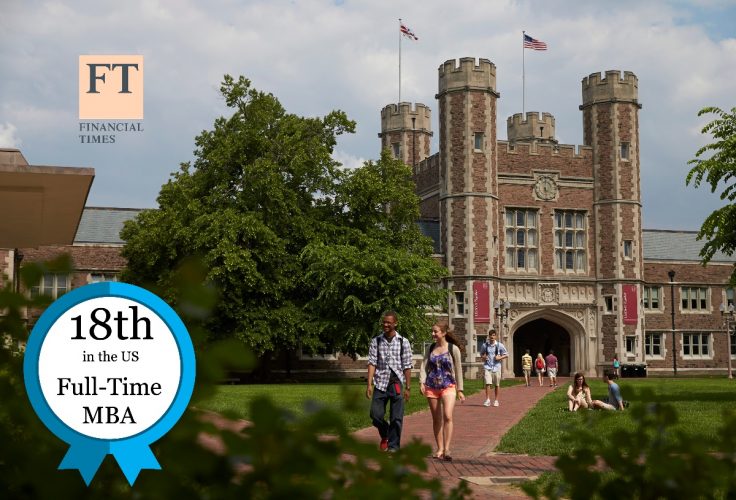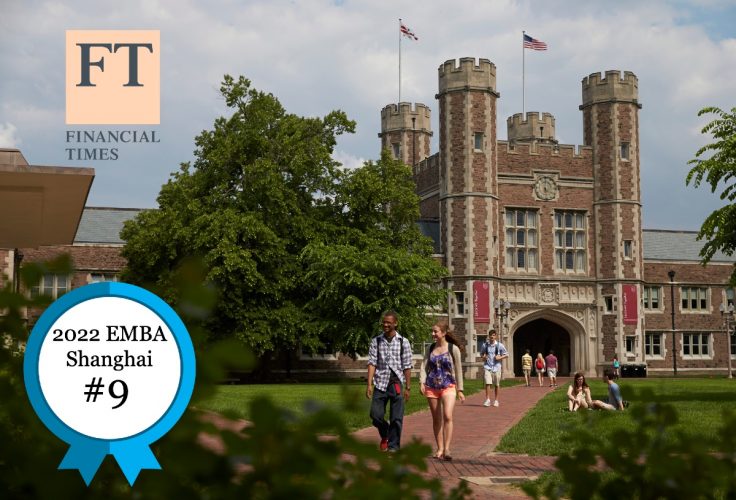While WashU Olin showed stronger job placement results in its Full-Time MBA program and tightened the selectivity among PMBA students year over year, both programs declined in the latest ranking of graduate business programs by US News & World Report.
Those declines came, in part, in the wake of significant changes in US News‘ methodology for both rankings. Olin’s Full-Time MBA fell from 29th to 37th, tying in that ranking with programs from Penn State and the University of California-Irvine. The PMBA dropped slightly, from 19th to 20th year over year.
In the case of the FTMBA, some of that decline came thanks to changes in the US News methodology, which reduced the weight of a survey-based quality assessment by peer schools and recruiters and increased the weight of employment rates, mean starting salaries and bonuses.
“Across many dimensions of this latest US News MBA ranking, Olin held steady or improved in the raw numbers. That’s good news,” said Gisele Marcus, professor of practice in diversity, equity and inclusion and Olin’s interim co-lead in the graduate programs office. “The overall results of this ranking can serve as another reference point as we gauge where the MBA marketplace is headed. We know what we have to do.”
For example, Olin increased employment rates, starting salaries and bonuses year over year. Still, the heavier weighting for those measures resulted in a decline in that dimension relative to other programs. Meanwhile, Olin’s quality assessment by recruiters and peers stayed steady year over year, but that dimension counted substantially lower in the overall ranking.
Meanwhile, Olin’s PMBA program was able to be more selective, choosing students with higher test scores, better grade-point averages and more work experience than the year before—dimensions, again, that counted for less under the new US News ranking methodology. Olin was also penalized because fewer students submitted graduate admission test scores than the methodology allowed.
Indeed, in its coverage, Poets & Quants referred to US News‘ 2023 ranking as “topsy-turvy,” noting that under the new methodology, b-school powerhouses Stanford and Wharton slipped down the rankings year over year, while Harvard stayed at fifth. The US News changes “caused plenty of wild swings up and down the ranking, particularly for smaller MBA programs with larger numbers of international students,” the site wrote.







